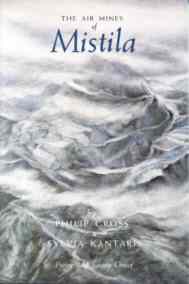We went twice to beautiful Scarthins in Cromford, being as it is my favourite bookshop in all the country. Not only did they agree to stocking a few copies of Birdbook, but I uncovered and purchased the following items:
white peak/dark peak is "an audio-visual world-map of The Peak District National Park" written by Alec Finlay and numerous collaborators, with the book acting as a catalogue. It contains Japanese renga and numerous concrete poems (resembling fragments of ordnance survey maps) along with details of the locations to which the poems correspond. The audio part of the project is online, and can be accessed with most mobile phones (though not Nokia N8s, as it turns out) using QR reading software; that is, you point your phone's camera at one of the 20 matrix barcodes and it should access and play the accompanying audio file.
The overall idea seems to be that you go to a location and listen to the poem that was composed in those surroundings, then perhaps write your own. It's an ambitious, inclusive and intriguing project and I warmed to Finlay's introduction, where he states:
"In an age in which plinths are crowded, bronze scarce, poetry proposes itself as the ideal form of public sculpture."
For Years Now by W. G. Sebald and Tess Jaray cost me a mere £3. Despite only containing 23 very short poems, it's a fairly chunky book, fleshed out with abstract illustrations by Jaray that are either beguilingly simple or something like Christmas wrapping paper, depending on your perspective. The poems are likely to be equally divisive. The title one goes:
For years now
I've had this
whistling
sound in
my ears.
W. G. Sebald was a lecturer at UEA during my first year there. I attended a couple of his lectures and read Rings of Saturn, just like everyone else on my course. His death was one of those events that left me unsure as to exactly how I should feel or respond.
All I know about Keston Sutherland is that various non-mainstream poets regard him as something of a luminary. Actually, that's not true - I also know, from reading this, his fourth pamphlet, Lidia, that he's a Prynne disciple and very probably studied at Cambridge. So far I have the same mixture of frustration and fascination I experience with a lot of non-mainstream British poetry, ie. it's fragmentary and inconclusive, with flashes of lovely phrasing. Still, £1.50 for a pamphlet from 1996 is always worth a punt, eh?
Moving on to The Bakewell Bookshop, where I picked up Zoe Brigley's The Secret:
Full price this time - but I've been wanting to read it for a while. I also wanted Kirsty to like it, since she's sometimes pessimistic about the number of good female poets around as compared to the male ones. Unfortunately, the book hit three immediate stumbling blocks in earning K's admiration: extensive notes (including the to-be-avoided phrase "As a writer ..."), flowery fonts (used in the last section for dialogue) and ... actually, I forget what the third one was. So the jury is still out!
For my part, I really like some of the poems (including 'Assassin' and 'Saboteaur') but I agree with what I faintly recall was a criticism made at the time it came out - that the poems feel shoehorned into an over-arcing structure for the sake of cleverness.
Another Bloodaxe book, The Air Mines of Mistila by Philip Gross and Sylvia Kantaris is currently out of print and must have been lingering in the bookshop since it first came out (I bought it for an inflation-busting £4.95). Tucked inside the cover, I found a faded brochure for the Poetry Book Society offering me full annual membership for £17.50 and displaying "a few of the new books offered at discount prices to PBS members during 1985-86", which included Fleur Adcock, Geoffrey Hill and Douglas Dunn, as well as a book called 'Portraits of Poets', featuring a despondent-looking Larkin squatting on the cover.
What I've read of Air Mines so far is highly enjoyable. It's of a genre that is currently rather neglected - the collaborative novella-in-verse.
Finally, I picked up this from Bookstore Brierlow Bar, a remainder bookshop near Buxton:









1 comment:
Mistila was one of my entry points to contemporary poetry; I loved the returning characters, the inception story, the fact they don't tell you from page to page whose is whose. Now I have to find my copy tonight.
a
Post a Comment